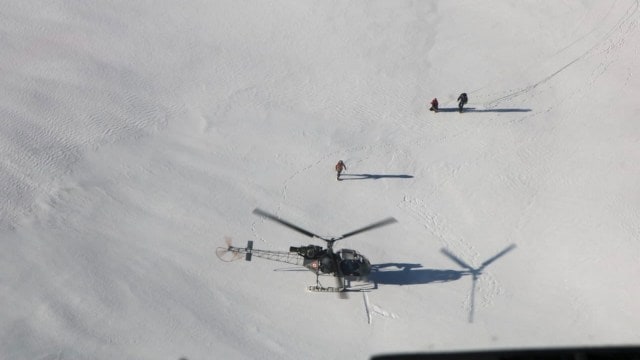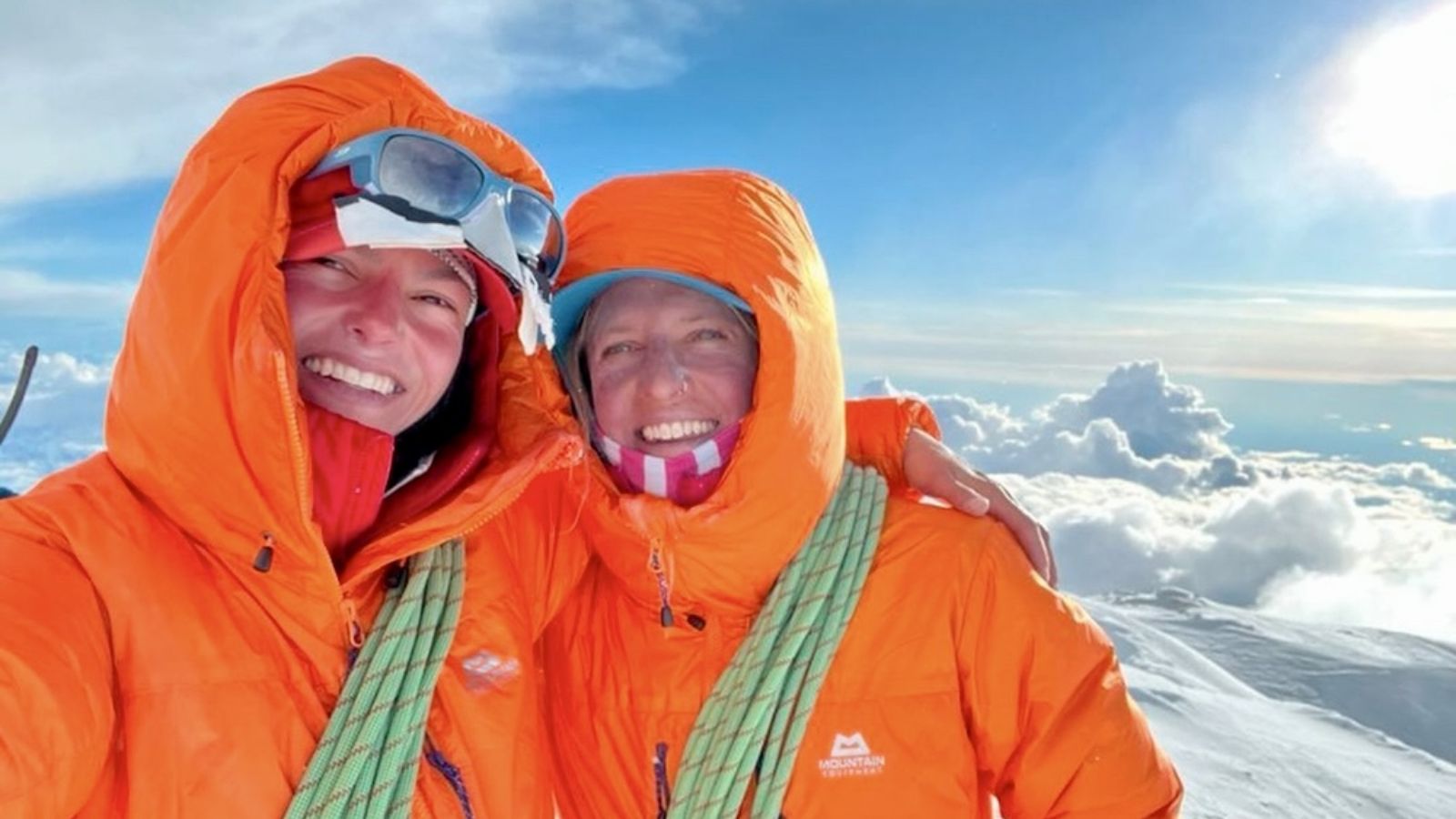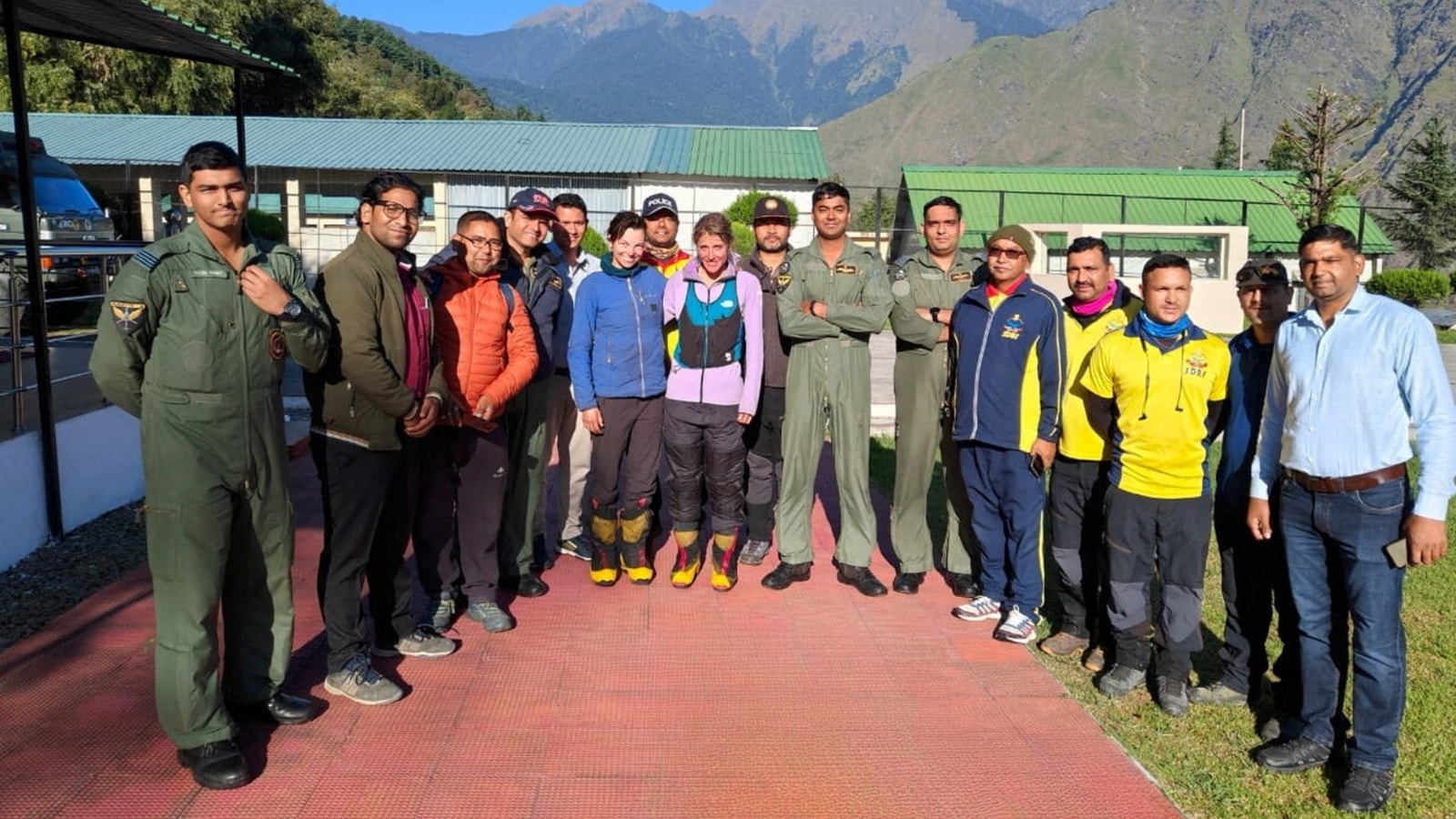60 hours, 6,300 metres — how several teams came together to pull off a stunning rescue of 2 women climbers in Uttarakhand
A French team on another expedition diverted their route and located the missing duo on Saturday, and they were rescued by IAF on Sunday morning
 Two foreign women mountaineers, who were stranded at a height of 6,015 metres on the way to the Chaukhamba III peak in Uttarakhand's Chamoli district, being rescued by the Indian Air Force. (PTI)
Two foreign women mountaineers, who were stranded at a height of 6,015 metres on the way to the Chaukhamba III peak in Uttarakhand's Chamoli district, being rescued by the Indian Air Force. (PTI)The rescue of British alpinist Fay Manners and American climate science scholar Michelle Dvorak, who were stranded at an altitude of 6,300 metres while climbing the Chaukhamba-III peak in the Garhwal Himalayas of Uttarakhand, came after they spent over 60 harrowing hours in extreme weather without access to crucial supplies.
On Thursday afternoon, the pair had sent out an SOS call and waited in the biting cold, scanning the skies for a miracle, before finally encountering a French expedition team.
The French climbers, already on a mission in the Chaukhamba region, diverted their route to locate the missing duo with coordinates provided by rescue authorities. They reached the stranded women on Saturday, and relayed their location to the Indian Air Force, which rescued them on Sunday morning.
The two mountaineers had been ascending a rocky section of the mountain when they got stranded.
 British alpinist Fay Manners (right) with her fellow mountaineer Michelle Dvorak. (Photo: Instagram/Michelle Dvorak)
British alpinist Fay Manners (right) with her fellow mountaineer Michelle Dvorak. (Photo: Instagram/Michelle Dvorak)
As per sources familiar with the situation, Manners and Dvorak were following a method commonly used on difficult ascents — tying their shared kit bag with a rope, climbing ahead, and then pulling the bag up once they reached a stable spot.
However, while pulling the bag, a rockfall severed the rope, sending the bag, along with crucial supplies like their food, tent, and climbing gear, tumbling into a gorge. They lost most of their communication equipment, but managed to send out an SOS call. They were then left stranded for the next two days.
Rescue operations by the IAF, the State Disaster Response Force (SDRF), and the Indian Mountaineering Foundation (IMF) began early on Friday, but the terrain of Chaukhamba-III presented numerous challenges. Located in Uttarakhand’s Chamoli district, the peak is known for its treacherous glaciated sections, steep ice and rock faces, and thin air at high altitudes, making it extremely difficult for helicopters to reach.
 The climbers in Joshimath after being rescued. (Reuters)
The climbers in Joshimath after being rescued. (Reuters)
The helicopters made several rounds over the general area on Friday and Saturday without success. The climbers were likely watching the aerial search unfold but were unable to signal the rescue teams, as they had lost all equipment, including any flashlights, flare guns, or smoke candles.
But the breakthrough came thanks to a French expedition team also operating in the Chaukhamba area. On hearing about the missing alpinists, the French team diverted their expedition and set out to locate Manners and Dvorak, using the coordinates shared by rescue officials. On Saturday, they found the two climbers, confirming their position and relaying the information to Indian rescue teams.
“When the French team learned about the missing mountaineers, they decided to assist,” said a source from the SDRF. “They altered their course and located the duo based on the coordinates we provided.”
As the SDRF teams mobilised on the ground, the Indian Army’s aerial team, conducting a parallel reconnaissance mission, finally rescued the two women on Sunday morning. The climbers were airlifted to the Joshimath helipad by an Army helicopter and were reported to be in good health.
Commander Arpan Yaduvanshi of the SDRF confirmed that the ground rescue teams, which had been scouring treacherous sections of the mountain, were also safely airlifted back to Joshimath later in the day. “The SDRF team that was advancing beyond the Advance Base Camp at 4,900 metres is also being flown back,” Yaduvanshi said.
The rescue operation highlighted the challenges posed by high-altitude mountaineering rescues. At altitudes above 6,000 metres, helicopters face reduced air density, which limits their ability to hover, land, or deploy rescuers.
Manners, a seasoned alpinist with a string of first ascents in the Alps and beyond, had embarked on this expedition with Dvorak in mid-September, starting from Delhi.







